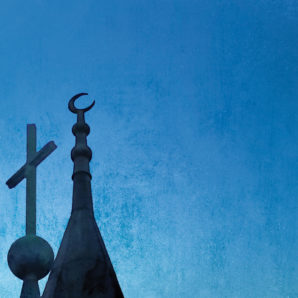Monks in Algeria: Loving Thy Neighbor at Gunpoint
A review of the film “Of Gods and Men.”
What does it mean to love your neighbor? What does it mean to love your neighbor when a neighbor is pointing a gun at you and your other neighbors? The film “Of Gods and Men,” which won “best film” at France’s equivalent of the Oscars on February 25th, is based on a true story. It follows the lives of French Catholic monks in Algeria in the 1990s as the country descends into violent conflict between a secularist state and radical Islamists.
Read More →
A review of the film “Of Gods and Men.”
What does it mean to love your neighbor? What does it mean to love your neighbor when a neighbor is pointing a gun at you and your other neighbors? The film “Of Gods and Men,” which won “best film” at France’s equivalent of the Oscars on February 25th, is based on a true story. It follows the lives of French Catholic monks in Algeria in the 1990s as the country descends into violent conflict between a secularist state and radical Islamists.
Read More →
